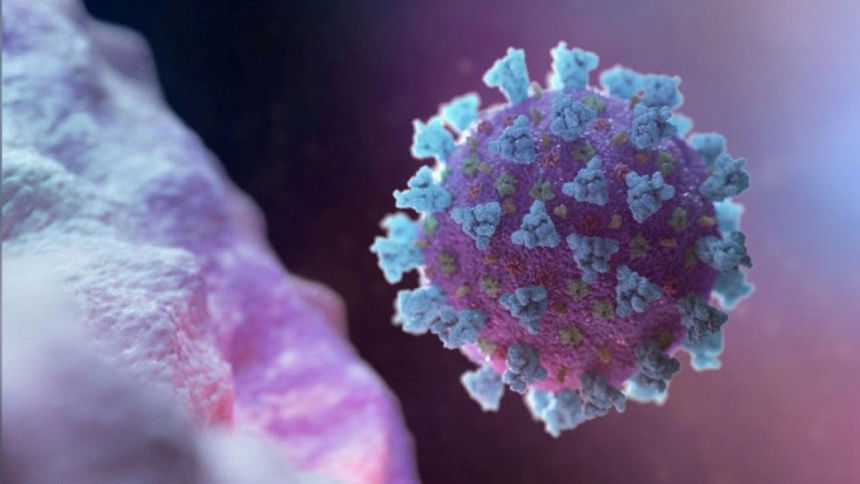A staggering 85pc cases in Dhaka

Dhaka remains the worst affected division in the country with over 85 percent of all confirmed cases of the coronavirus.
The authorities yesterday reported 390 new cases of Covid-19 and 246 of them are from Dhaka division where there are a total of 2,756 confirmed cases.
Among other divisions, Chattogram shares 4.42 percent, Mymensingh 3.93 percent, Barishal 2.1 percent, Rangpur 1.77 percent, Rajshahi 0.74 percent, Sylhet 0.59 percent and Khulna 0.71 percent of the total detected cases.
The country now has a total of 3,772 detected cases, Prof Nasima Sultana, additional director general of Directorate General of Health Services (DGHS), said in a briefing yesterday.
In Dhaka division, higher number of tests and ineffective restrictions are the key reasons why more cases are being detected.
People of the 14 districts in Dhaka division are likely to acquire "natural herd immunity", a form of indirect protection from an infectious disease that occurs when at least 60 percentage of a population becomes immune to a germ, experts said.
According to Global Alliance for Vaccination and Immunization, herd immunity can be challenging to induce through unchecked infection as there would be a very high rate of serious illness and death, with health systems overwhelmed well beyond their surge capacity, even in high-income countries.
"Testing activities are more concentrated in Dhaka. Besides, the lockdown is not working and transmission continuing," Prof Nazrul Islam, noted virologist and former vice chancellor of Bangabandhu Sheikh Mujib Medical University, told The Daily Star.
"It appears that the outbreak in the city is heading towards its peak," he said, adding that the future may be grim, and eventually people would gain herd immunity.
Prof Ridwanur Rahman, medicine and infectious diseases specialist, said, "With the current number of daily tests, it is not possible to get the real picture."
He suggested introducing widespread tests across the country within two weeks to detect and isolate all hidden cases. "During this period, no one will be allowed to move anywhere."
Transmission in Dhaka remains uncontrolled due to lax restrictions and inadequate tests. At one point, people will gain herd immunity, he added.
Prof Nasima Sultana yesterday said 10 people died from the coronavirus in 24 hours before 2.30pm yesterday, taking the toll to 120.
Of the victims, seven were men and three women; seven were from Dhaka and one each from Narayanganj, Tangail and Mymensingh.
Three of them were above 60, two were 51 and 60, three between 41 and 50 and two 21 and 30.
"Young people should not feel that the disease will not harm them," Nasima said.
During the same 24 hours, five Covid-19 patients recovered, taking the total to 92.
Yesterday's announcements came after 3,096 samples were tested across the country, a 4.1 percent rise from the number of samples tested the previous day, she said.
A total of 150 people suspected of being patients are in isolation around the country.
Bangladesh reported its first Covid-19 case on March 8 and the first death on March 18. On March 23, the government announced the shutdown of all public and private offices from March 26 to April 4 as a measure to slow the contagion.
Although law enforcers and even the Bangladesh Army are on the field to ensure social distancing to prevent Covid-19 from spreading, many people are coming out of their homes. While many poor people had to take to the streets to find relief or some work, many others were roaming the streets with either an unimportant or no purpose.

 For all latest news, follow The Daily Star's Google News channel.
For all latest news, follow The Daily Star's Google News channel. 



Comments